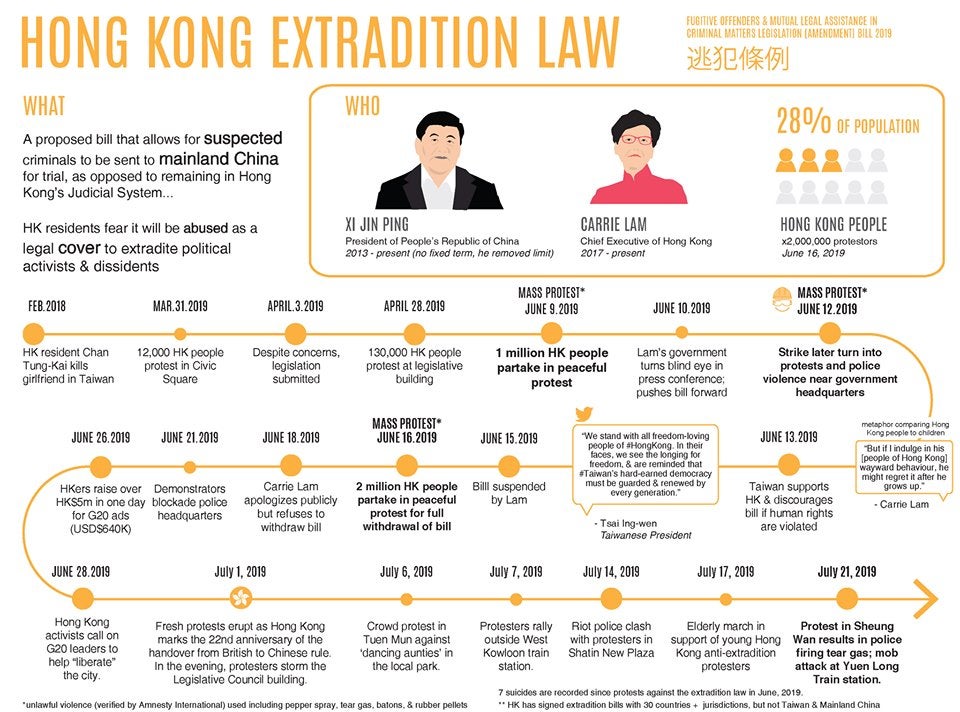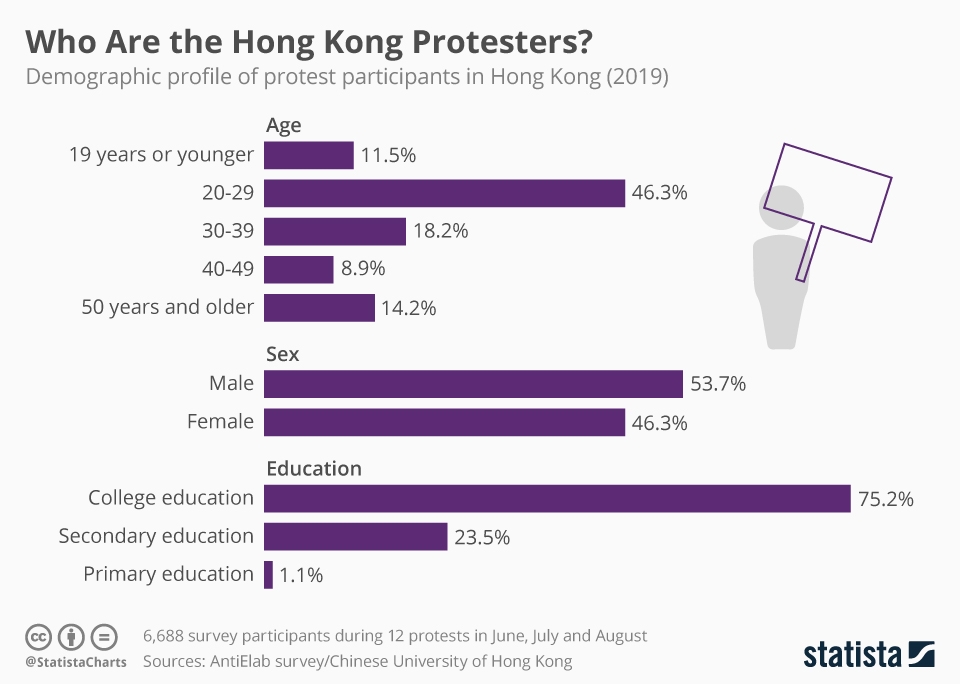2019 Anti-Extradition Amendment Bill Movement
The Extradition Law Amendment Bill is a proposed bill by the Hong Kong government to establish a mechanism for transfers of fugitives wanted in countries and territories with which it has no formal extradition agreements, including Taiwan and the Chinese mainland, which was introduced in February 2019.

The introduction of the bill caused widespread criticism domestically and abroad with concerns being raised regarding the erosion of Hong Kong’s legal system and its built-in safeguards, as well as damage to Hong Kong’s business climate. Ongoing protests called for a complete withdrawal of the bill as they contended that the law would allow virtually anyone in the city to be picked up and detained in mainland China, a country in which judges must follow the orders of the Communist Party. Here is how the movement rose and caught a humongous fire.

The protestors have used the methods of decentralised leadership, geographical dispersal in groups, the flexible and diverse tactics, black boc methods, using laser pointers to distract the police and spraying paint on surveillance cameras. The protest is multi faced as there are ‘brave fighters’ on one hand and also ‘non-violent activists’ on the other. The movement is not restrictive to any particular group of Hong Kongers but has involved almost every single person.
The movements were alternatively carried out by putting out messages on the Lennon wall, boycotts of all the outlets to scrap off the business, hunger strikes, non-cooperation movements, police station blockades, petition campaigns, and also human chain.
The Hong Kong government has tried to suppress the protests by banning of rallies, brutal police tactics, thug attacks, the arrests of high-profile activists and metro line closures but these have failed to dampen the unrest. Critics condemned Carrie Lam’s arrogance, and her extended absence and avoidance of public attention after her apology and believed that these factors enabled the protests to escalate. Ma Ngok, a political scientist at CUHK, remarked that the government “has lost the trust of a whole generation” and predicted that the youths would remain angry at both the government and the police “for years to come”.
Hong Kong Administrative scrutiny
The Legislative Council of the HKSAR or LegCo is the unicameral legislature of the HKSAR of the People’s Republic of China. It is a semi-autonomous democracy where the legislature is a body comprising 70 members, 35 of whom are directly elected through five geographical constituencies , while the other 35 are indirectly elected with limited electorates who actually control the politics. Because pro-Beijing lawmakers hold 40 of 70 seats in the Hong Kong legislature, the bill is likely to pass if it came to a vote. This weakens the position of Hong Kong in terms of their administrative control already.

